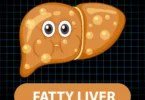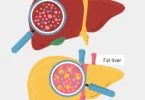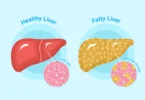If you have been diagnosed with fatty liver disease, you are not alone. Millions of people worldwide are suffering from this challenging condition, whether it is Non-Alcoholic Fatty Liver Disease (NAFLD) or fatty liver disease secondary to alcohol. The good news is, the liver has an amazing ability to heal itself when supported.
The Mediterranean diet is discussed as a hope and healing for those dealing with fatty liver disease, because it is not just a restrictive diet plan, it is a compassionate approach to nourish your body back to health. Multiple studies have shown that the Mediterranean diet improves liver function, reduces inflammation, and even reverses fatty liver disease.
With over 25% of adults worldwide affected by NAFLD, it has never been more important to understand how diet impacts the health and function of the liver. Your food decisions today could be defining your liver’s tomorrow.
What is the Mediterranean Diet?
The Mediterranean diet is so much more than eating patterns. It is a life celebration and lifestyle embracing health and nourishing your body with wholesome foods. Originating from the traditional dietary patterns of the Mediterranean countries bordering the Mediterranean Sea, this way of eating focuses on the following main principles :
- A wide variety of fresh fruits and vegetables
- Whole grains are the main source of carbohydrates
- Extra virgin olive oil is most of the time the main source of fat
- Regular intake of seafood or fish
- Low intake of dairy (primarily yoghurt and cheese)
- Avoidance of red meat and ultra-processed foods
This dietary pattern inherently limits added sugars and ultra-processed meat and utilizes foods that actively support liver health overall. Unlike restrictive-type diets that lead you to feel depleted, the Mediterranean way offers variety, flavour, and sustainability.
How Mediterranean Diet Can Support Your Liver Health
Your liver works hard to process nutrients, filter out toxins and keep your metabolism regulated. When your liver reaches its limit on fat and fat accumulation, the Mediterranean diet can be a helpful partner.
Not too long ago, studies published in the Journal of Hepatology displayed that the Mediterranean diet can reduce liver fat by up to 39% after just 6 months. This diet works in several ways:
- Triglyceride Reduction: Olive oil and fish contain healthy fats, normalizing lipid levels in blood
- Insulin Sensitivity: Fiber-rich foods improve glucose metabolism, reducing insulin resistance
- Anti-inflammatory Benefits: Polyphenols and omega-3 fats help to reduce liver inflammation
- Weight Reduction: Allowing natural satiety with whole foods supports continued weight loss
According to the studies in PMC, the improvements to liver enzymes and fat content in patients with NAFLD who adopted a Mediterranean dietary pattern were significant.
Best Foods For Liver
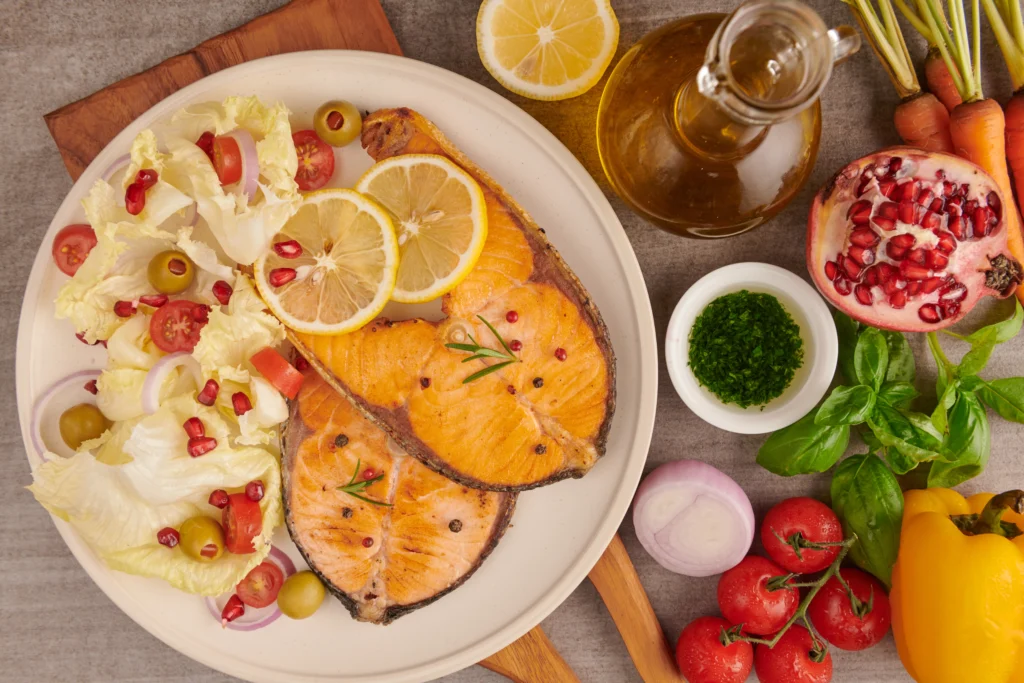
If you want to improve your liver health and reverse fatty liver, you should eat foods that help you heal your liver. These foods are not only good for you; they also happen to be your liver’s best friends:
Whole Grains:
- Steel cut oats, rich in beta-glucan
- Whole grains, quinoa as a complete protein and minerals
- Brown rice to have lasting energy
- Barley, to help control cholesterol
Healthy Fats :
- Extra virgin olive oil, containing both vitamin E and polyphenols
- Raw almonds and walnuts (both rich in omega-3s)
- Avocados providing unsaturated fat
- Chia and flaxseed adding more fiber
Fatty Fish (Omega-3 Black Belts): Studies published in PMC confirm that your Soup cuisine containing omega-3-rich fish is a real liver fat reducer:
- Wild caught salmon
- sardines – cheap, sustainable food choice
- mackerel -has high omega-3
- anchovies -great as flavor enhancers
Foods to Avoid For Fatty Liver

When healing your liver, you need to say goodbye to foods that stress your liver. This is not about being perfect. This is about progress and being compassionate with yourself.
Processed Meats and Red Meats:
- Red meat once a week
- Processed meats (deli meats) high in sodium and preservatives
- Replace with poultry or fish, or plant protein
Added Sugars, and Sugary Beverages:
- Sodas and energy drinks would need to be completely removed
- Fruit juices, even “natural” juices, need to be limited
- Packaged foods may have sugars hidden
- Natural sweeteners may be dates or stevia, to be used sparingly
Alcohol (critical for fatty liver recovery): Any alcohol consumption, even moderate drinking, can affect fatty liver disease. Studies in PubMed demonstrate that abstinence from alcohol is needed for complete healing of the liver in patients with NAFLD.
Green Mediterranean Diet For Fatty Liver
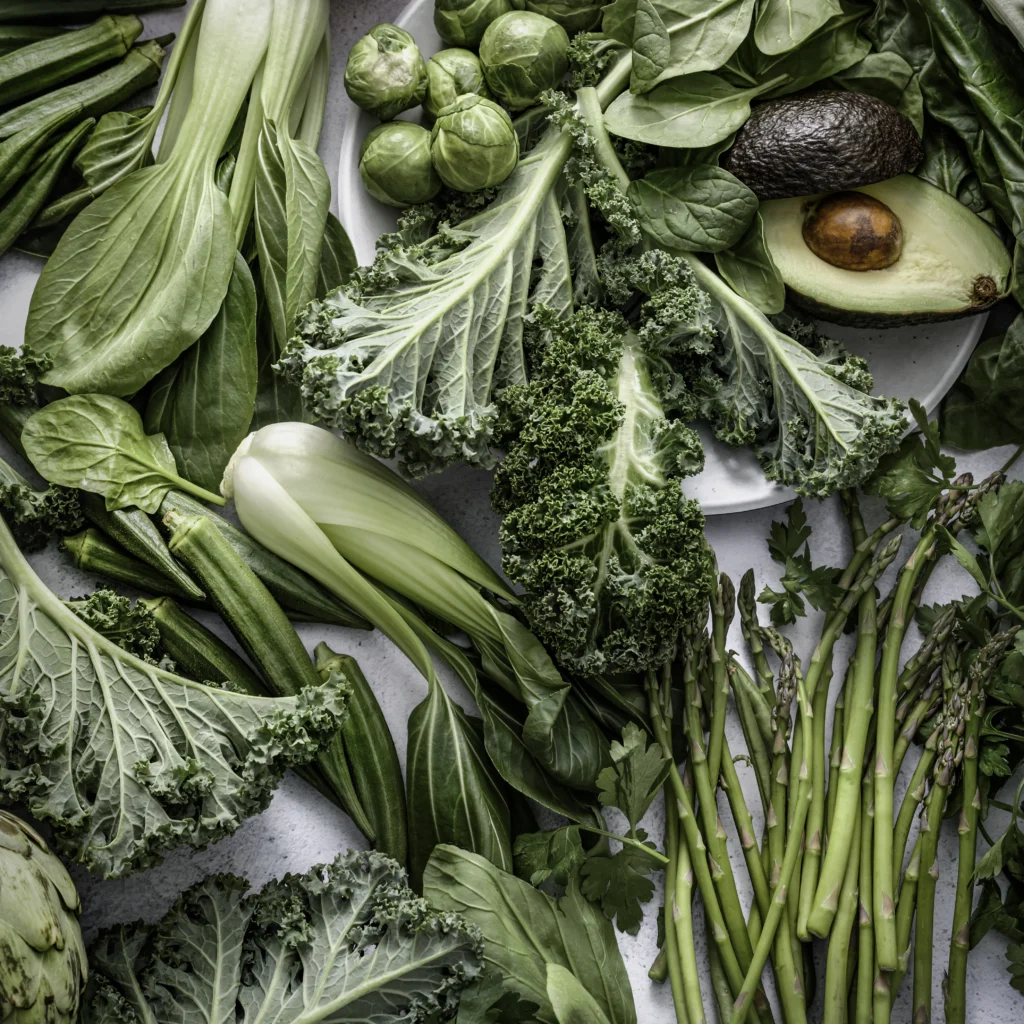
The “Green Mediterranean Diet” places additional focus on plant polyphenols and further reduces the quantity of meat consumed.
Additional Elements:
- Green tea daily (3-4 cups)
- Walnuts are used as a primary protein snack
- Mankai (duckweed) smoothies (when available)
- Increase Leafy green vegetables
Studies published in PubMed found that the enhanced Mediterranean diet reduced liver fat by an additional 7 % compared to the Mediterranean Diet.
Mediterranean Diet Guide Tips
Making real, lasting behavior changes doesn’t happen overnight, but here are some methods to help you transition to this healing way of life:
Simple Swaps
While many things may feel out of our control in life, making small changes in our behaviour will help you take ownership of your health and create positive changes to your liver, with a big impact. If you often use butter, cook and drizzle with extra virgin olive oil instead. Use whole grain instead of white bread. When snacking, choose nuts instead of potato chips, use herbs or spices instead of salt. With these effortless swaps, we can elevate the food we eat without sacrificing taste.
Weekly Meal Planning
To successfully transition to the Mediterranean way of eating, we have to be scope, and that starts with planning ahead. Make telling to prepare for 2-3 meals of fish each week; to ensure a healthy intake of omega-3 in our diets. Make one full, meatless day a week, to embrace more plant-based consumption. On the weekends, prepare your veggies ahead of time, so when the weekdays arrive, and you feel the rush, you do not have to prepare ahead of time. Tip: leave your healthy snack options visible on the kitchen counter, or fridge! What is seen is often what is reached for when we get hungry.
Cross-Cultural Adaptability
The flexibility of the Mediterranean diet allows us to incorporate foods from our cross-cultural palate, family on family tradition, while keeping each of the elements intact. You can enjoy vegetarian bean burritos with avocado, simple stir-fries made with olive oil or chickpea salad with tahini from Middle Eastern cuisine; and remain in line with the principles of Mediterranean.
Lifestyle Changes For Fatty Liver
Improving liver health goes well beyond making food choices. These lifestyle factors are enhanced by the Mediterranean diet:
Physical activity
Eating well is extremely relevant to liver health; however, living an active lifestyle is an equally important counterpart to the Mediterranean diet. Try to achieve about 150 minutes of moderate activity per week, or JUST OVER 20 MINUTES PER DAY! Incorporate aerobic exercise and strength training into your weekly program. Going for simple walks after meals each day provides some digestion help while regulating your blood sugar levels, which alleviates excess working of the liver naturally. Do the activities that you love – dancing, swimming, hiking, or even just playing with your kids. When you exercise as play instead of punishment, you will likely be more successful in the long run.
Stress and sleep management
Chronic stress and poor sleep negatively affect liver health. Aim for 7-9 hours of quality sleep each day and practice stress-reduction methods such as meditation, yoga, and other deep breathing exercises.
Frequently Asked Questions About Mediterranean Diet
Is coffee good for fatty liver?
Regular coffee consumption (2-3 cups/day) may offer protective effects on liver health (including reduced liver fibrosis and improved liver enzyme levels).
Is wine allowed on the Mediterranean diet with fatty liver disease?
Wine is consumed in moderation as part of the Mediterranean lifestyle, but if you have fatty liver disease, it is best to abstain from alcohol entirely while healing your liver.
Are supplements necessary with Mediterranean diet ?
A balanced Mediterranean diet should meet most of the nutritional needs of most people without the use of supplements. But adding some supplements like Milk Thistle and Probiotics can accelerate the process.
Starting Mediterranean diet For a Healthy Liver
Changing your diet to a Mediterranean diet to help heal your fatty liver disease is more than just about changing your food choices; it is about adopting a way of living that honours the human body’s phenomenal ability to heal. Every splash of olive oil, every nutrient-dense, colourful vegetable, and every mindful meal choice is an investment in the health of your liver.
Remember, progress is not perfection. Small and consistent changes accumulate over time to create incredible transformations. Your liver has been working hard for you; now you get to work with it.
Always talk to your healthcare provider before making substantial changes to your diet, especially if you have pre-existing medical conditions.
Top 5 Supplements Supporting the Liver on the Mediterranean Diet
- Omega-3 Fish Oil (EPA/DHA) – High-quality supplement for limited seafood consumption
- Milk Thistle Extract (Silymarin) – Traditional support for detox and protection of the liver
- Vitamin E (natural Alpha-Tocopherol) – Antioxidant protection for liver cells
- Turmeric with Black Pepper Extract – Anti-inflammatory support for liver health
- Probiotics (multi-strain formula) – Gut health support that feeds liver function
Talk to your healthcare provider before beginning supplementation for pre-existing liver conditions.
Join Our Community of Health Enthusiasts!
Every week, we bring you positive stories from people who are actively looking after their health and wellbeing. From natural health nuggets to day-to-day wellness tips you can put into practice no matter what lifestyle you lead, this is a place for anyone dedicated to living their healthiest life, no matter what their age.
You don’t want to miss the next advance in helping you with your health journey. Register for our free newsletter and join the tens of thousands of others who have found that the best health is always within reach.
✉️ Subscribe now and get:
- Weekly evidence-based health insights
- Exclusive wellness guides and recommendations
- True success stories from our community members
- Your healthiest chapter is still to come. Let’s create it together.
Subscribe Here – It’s Free
Disclaimer:
This blog post is for informational purposes only and is not intended as medical advice. Always consult with a qualified healthcare professional before making any changes to your diet, exercise routine, or healthcare plan. The information provided is based on personal research and experience and may not apply to everyone


